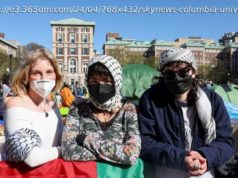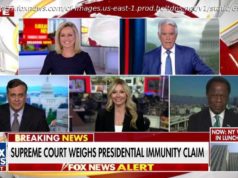 On Tuesday 10 January, Culture Secretary Karen Bradley’s consultation on Section 40 of the Crime And Courts Act closes.
On Tuesday 10 January, Culture Secretary Karen Bradley’s consultation on Section 40 of the Crime And Courts Act closes.
The Leveson process has been long, arduous and complicated. As a result, it’s often been narrowed into a simple for/against, even left/right narrative. Are you “for” the phone hackers, or for the victims? Are you for the press barons or for privacy?
The reality is more complicated. If it comes into force, this new law will cause huge damage not just to national newspapers, but to local and regional independent newspapers, and even campaigning organisations such as Global Witness.
Global Witness exists to shine a light on corruption and on environmental and human rights abuses. As we say – find the facts, expose the story, change the system.
In our investigations into the oil industry, deforestation, blood diamonds and other practices that have the potential to ruin lives and the planet, we employ researchers and journalists, and we publish our findings.
So, for all intents and purposes, we are a news organisation, and we are certainly subject to the same (if not worse) legal threats as newspapers.
Our work focuses on dictators, oligarchs and criminals, people who show little hesitation in using every trick in the book to fight their enemies and hide their misdeeds.
Section 40 of the Crime and Courts Act, should it come into force, would mean that such people could sue Global Witness without fear of financial loss. The Act states that costs for the case should, by default, be paid by the defendant, regardless of who wins the case, and whether the claims published were true or not, or if an invasion of privacy was justified or not.
To give one example from our own work: in 2007, Global Witness obtained credit card details connected to Denis Christel Sassou Nguesso, the son of the leader of Congo Brazzaville, which suggested that he had been using state money to fund his luxury lifestyle .
Sassou Nguesso applied for an injunction to stop us publishing. He eventually lost , but, as Global Witness told parliament in 2008: “Regardless of the UK judge’s ruling in favour of Global Witness’s right to publish this information in that case, and the awarding of costs to us, the practical implication is that we incurred £50,000 in legal costs.”
Under Section 40, we would be facing a situation where we incurred not only our own costs, but also those of claimants such as Sassou Nguesso, regardless of the fact that we were in the right.
It’s a bizarre and ill thought-through provision, which assumes fault on the side of the publisher. This may be tempting for those who want to see the excesses of the tabloid press reigned in, but it’s not just the tabloid press who will suffer. Organisations such as Global Witness must factor in potential court actions into any of our work: if we had to factor in the other sides costs, we would have to think twice about our work.
As newspapers’ revenues get squeezed, more and more of the work exposing corruption will be done by organisations like Global Witness. To introduce a law giving carte blanche to the people we investigate to sue, free of financial consequence, would be a huge blow to our work and the work of other campaigning organisations.
Section 40 is about a lot more than phone hacking and press barons. It threatens society’s ability to hold the powerful to account. That’s why Global Witness is urging people to take part in the consultation and raise their voices against this worrying and dangerous law.
Nicola Namdjou is the senior legal manager at Global Witness .
Jeremy Corbyn is to pledge that Labour will make a “complete break” with a “rigged system” that serves the elites.
Speaking to the Fabian Society on Saturday, the Labour leader is expected to say: “Last year’s global political earthquake didn’t just come out of the blue. There are many of us who had felt the tremors growing for years. The people who run Britain have been taking our country for a ride. ”
He will propose public takeovers of failing care homes and a long-term funding plan for the NHS.
But here’s an interesting Islington dinner party question. When he talks about a “complete break” from “the people who run Britain”, who is he talking about?
Corbyn says these people have “slashed taxes on the richest”, and cut pay and services for the rest.
Sounds like the Tories. But here are some other things about these people that gets Corbyn’s goat.
He says they’ve “put the country at risk by taking us into disastrous foreign wars”. That could, of course, be David Cameron’s Libya adventure. But that is hardly as controversial as Labour Prime Ministers Tony Blair’s decision to join the invasion of Iraq.
Well, we always knew Corbyn opposed Blair and Iraq.
But what about some of the other things the “people who run Britain” did?
Corbyn criticises an elite who have “rigged the economy and business rules” and “piled up debt”. He might be talking about the Coalition government, or the Tory government – or the last Labour government, which bailed out the banks.






